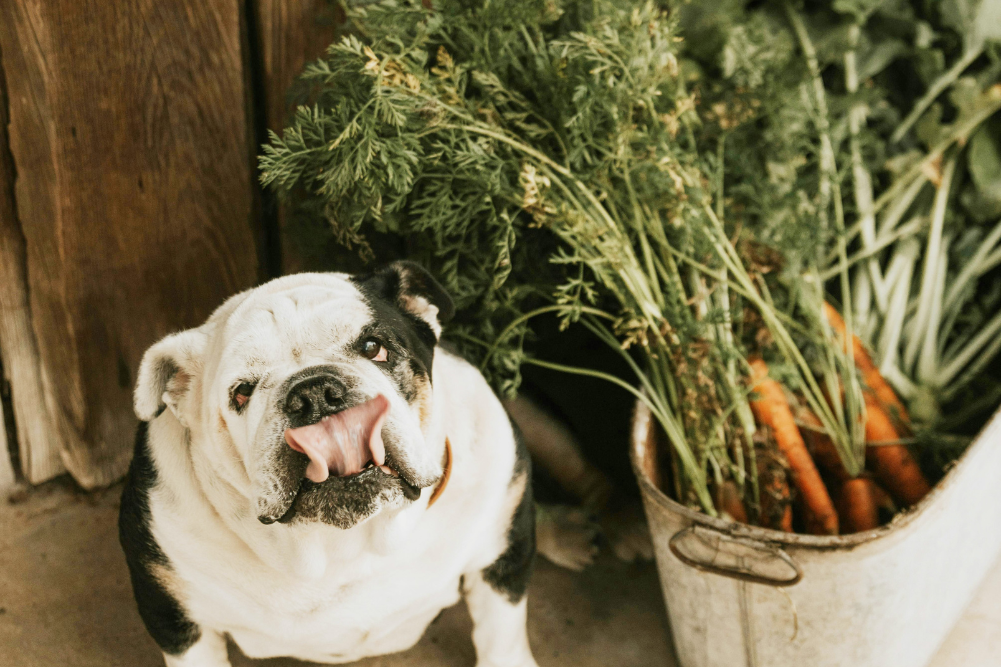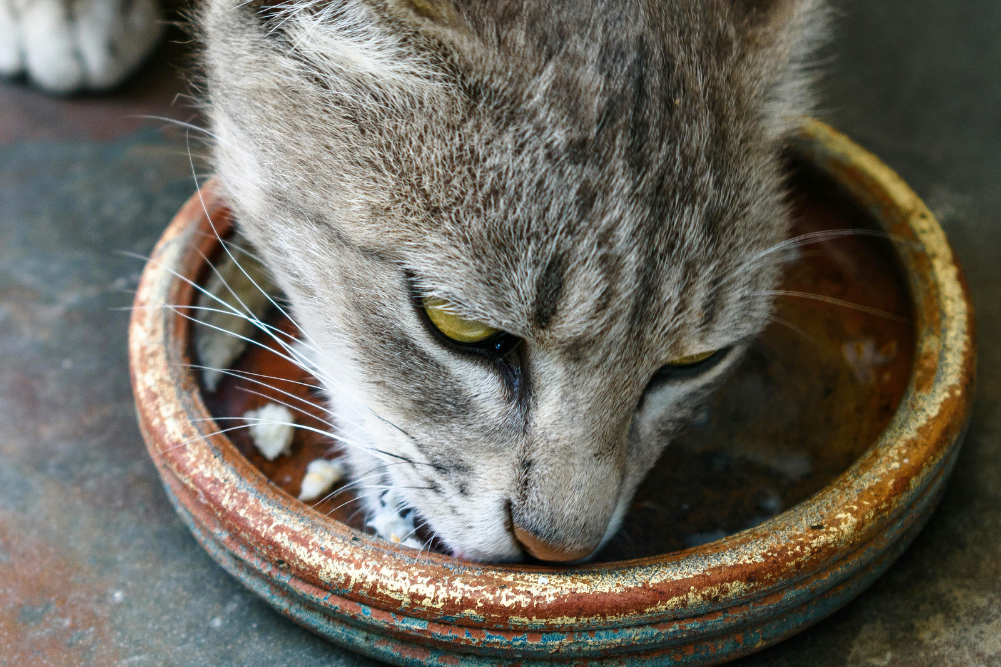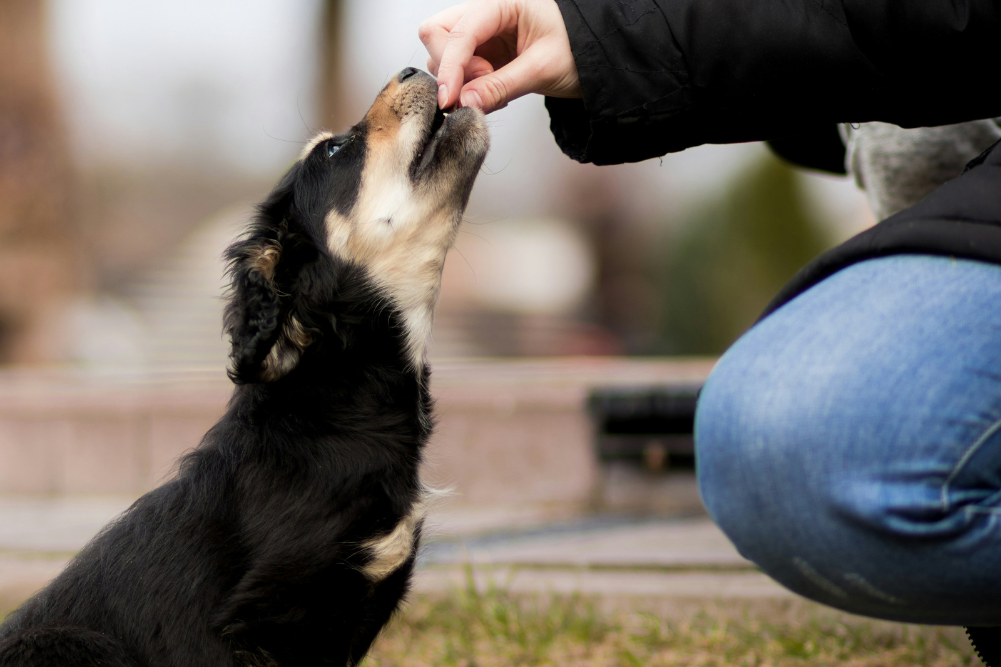Can diet change your pet’s behaviour?
Whether it’s the cat peeing on the bed, the dog cowering under the bed during storms, separation anxiety or signs of aggression, management of your pet’s behavior may require a combination of calming strategies, behaviour modification programs, environmental changes and maybe medications to reduce stress. One thing you can change, which may reduce stress and anxiety for your pets, is their diet. Your pet may have special dietary needs however, for other medical conditions, so any diet change should be discussed with your vet.
A strategy that may improve behaviour in pets is reducing or eliminating conventional dried foods from their diet. I’ve discussed this in articles on treating allergies, digestive disorders, weight gains and other chronic health issues. Dry foods in general are higher in carbohydrates (even grain-free foods are relatively high in carbs) and much lower in moisture, and may contain other additives such as synthetic vitamins, minerals, preservatives and flavourings. Diets high in simple carbohydrates have been associated with ADHD in some children, and may also be associated with the development of symptoms of dementia.
Feeding pets dried foods (and by this, I mean cooked dried foods — freeze-dried or air-dried may be a better option) may induce non-specific inflammation, which can alter mood and behaviour. Using Traditional Chinese Medicinal paradigms, anxiety can be associated with Damp Heat and Empty Heat, as well as Blood Deficiency. The dietary approach to these in general is a diet that is higher in protein, antioxidants and essential fatty acids, and lower in carbohydrates.
So, while feeding of Heating dry foods can exacerbate Empty Heat or Damp Heat, Cooling foods can be added to the diet. Some of these include seafood, asparagus, Asian greens or cucumber. Foods that tonify Blood include red meat (but avoiding mutton because of Heating effects), liver, egg, mushrooms, dark leafy greens, beetroot and dandelion leaf.
Feeding dogs with territorial aggression a low-protein diet supplemented with L-tryptophan may help reduce aggression.
The specific preparation of food is also important. Foods that are raw or lightly cooked will be less Heating than foods that are cooked and dried. A veterinarian familiar with feeding homemade meals to dogs and cats can use this approach to formulate diets.
There have been different recommendations for protein levels fed to dogs with aggression. One study (Jean S Denaopli et al 2000) concluded that feeding dogs with territorial aggression a low-protein (18 per cent) diet supplemented with L-tryptophan may help reduce aggression. However for dogs with dominance aggression, feeding a high-protein (30 per cent) diet supplemented with L-tryptophan or changing to a low-protein diet was associated with improved behaviour. Another study in 1996 (N H Dodman et al) showed no change in behaviour when altering protein fed to dogs with dominance aggression, but that dogs with territorial aggression (which is fear-based) may improve with low (17 per cent)or moderate (25 per cent) protein diets.
These days we understand there is no one single cause of aggression in dogs, and that multiple stimuli may occur at one time and result in aggressive displays. I generally recommend trialling a moderate protein diet and L-tryptophan supplementation.
L-tryptophan is an amino acid which is a precursor to serotonin, a neurotransmitter associated with mood, cognition and satiety. High-tryptophan foods include turkey, lamb, beef liver, oily fish such as tuna or salmon, eggs, spinach and cottage cheese. You can also ask your vet about L-tryptophan supplements for pets. The effect of L-tryptophan may also depend on the total diet amino acid composition, which can affect uptake and availability. It’s best not to combine L-tryptophan with selective serotonin reuptake inhibitors (SSRIs) or monoamine oxidase antidepressants. L-tryptophan may not be as beneficial for cats, due to their unique metabolism.
Gut health influences behaviour, and so any diet fed to a dog or cat with anxiety needs to support good digestion and a healthy gut microbiome. If a pet with anxiety also has chronic or recurring gut signs, then consider a diet change to address this, as well as strategies to reduce gut inflammation and promote healing, and a good-quality probiotic supplement. An elimination diet trial or other testing for food sensitivities can also be considered.
Omega-3 essential fatty acids may help reduce inflammation and assist with behaviour modification. One study showed that otherwise healthy German shepherds with signs of aggression had lower docosahexaenoic acid (DHA) and higher omega-6 compared to normal dogs (Zanoletti et al 2008); however, this study did not confirm that adding omega-3 would be helpful. But since fish oil can be regarded as a blood tonic, and has anti-inflammatory effects, then I would usually add it to the diet, beginning slowly and monitoring for diarrhoea.
Medium-chain triglycerides have been added to prescription diets for dogs with cognitive deficits or anxiety disorders. To emulate these diets naturally, you may need to have a balanced diet high in medium-chain triglycerides formulated by an accredited veterinary nutritionist. However, you may also try adding a little coconut oil, which has some medium-chain triglycerides, into the diet. Anecdotally, dose ⅛ teaspoon daily for cats to begin with, ¼ teaspoon for medium and ½ teaspoon for large dogs. I also consider adding vitamin B complex and vitamin B12 for any dogs or cats with chronic anxiety or cognitive decline.








